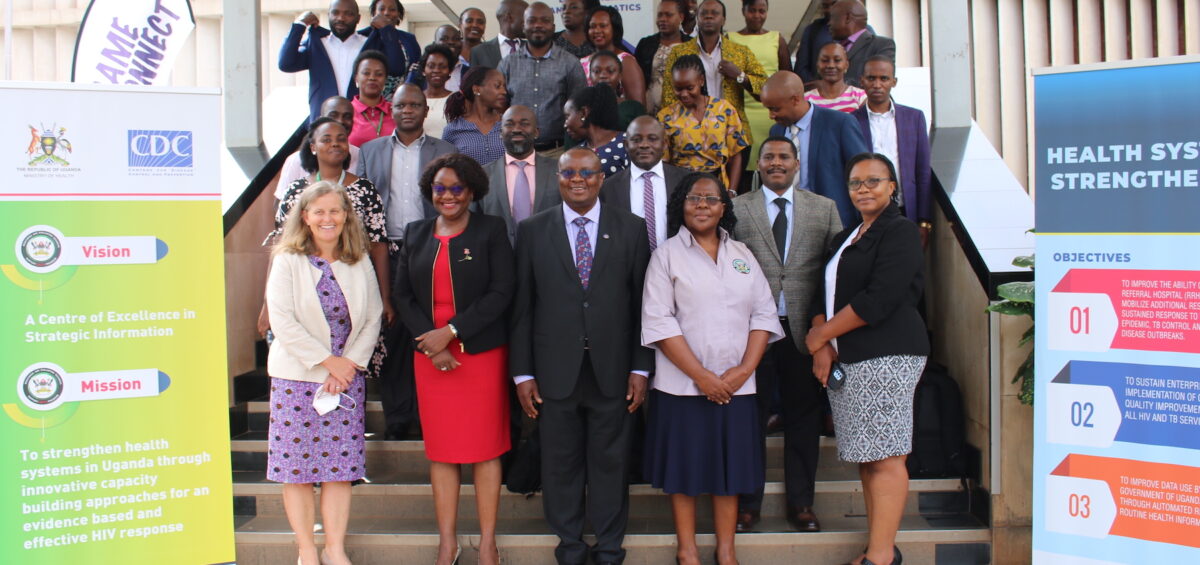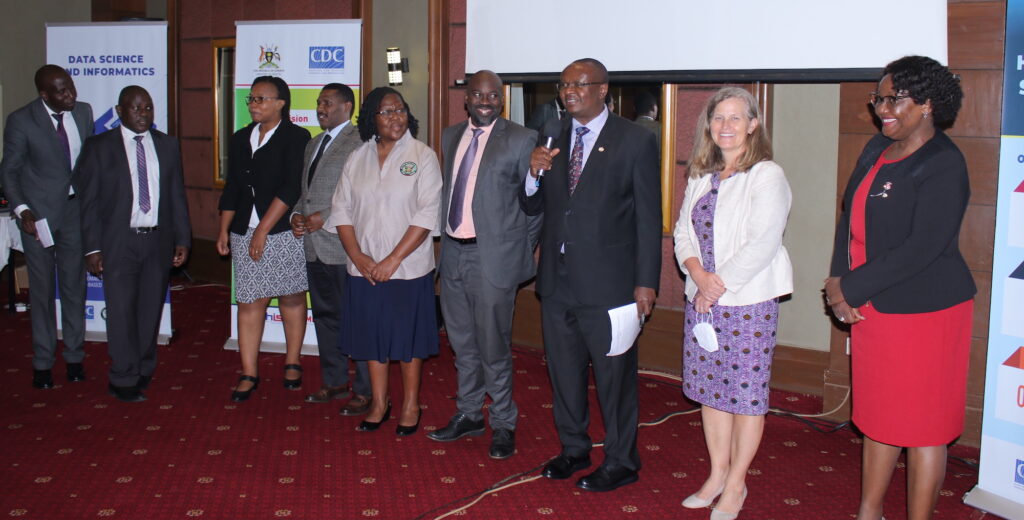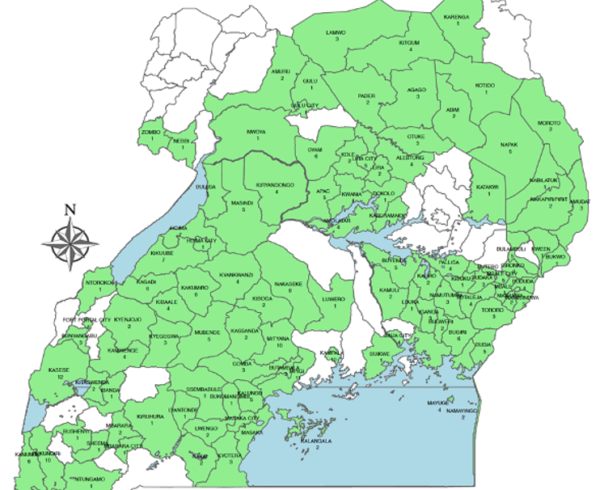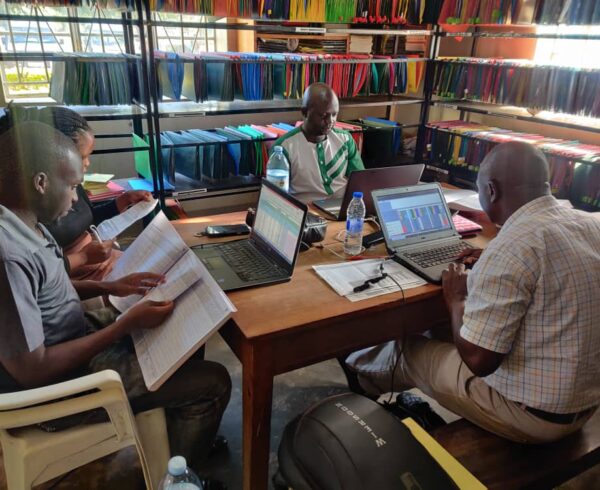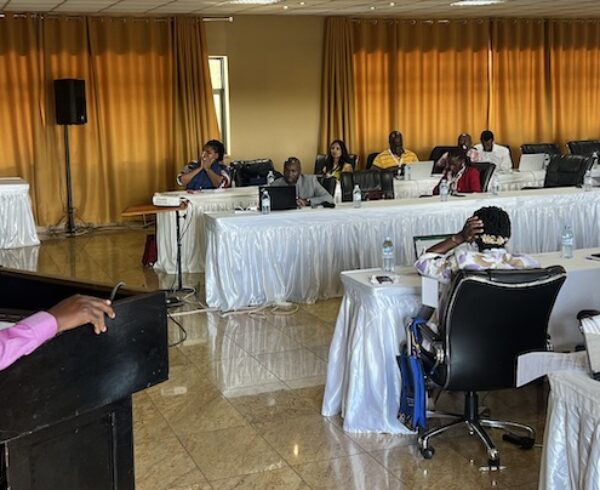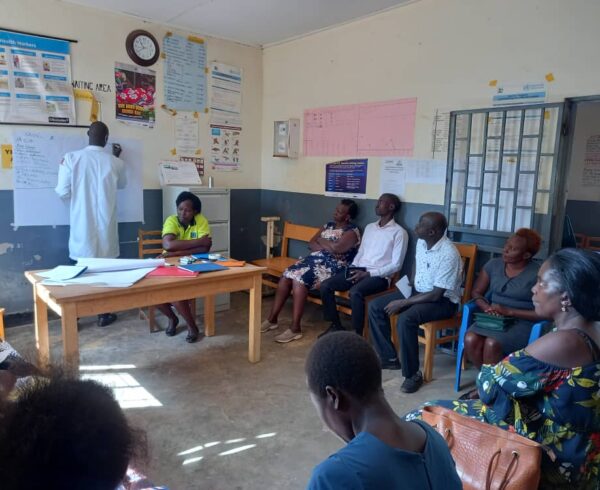The Makerere University School of Public Health – Monitoring and Evaluation Technical Support Program (MakSPH-METS) under the guidance of Ministry of Health (MoH) – Standards, Compliance, Accreditation, and Patient Protection Department finalized the development of the national integrated Continuous Quality Improvement (CQI) database (https://cqi.health.go.ug). The database which tracks quality improvement projects at health facilities was first launched by the Minister of Health Hon. Jane Ruth Acheng on 24th November 2021 during the 8th annual National Health Care Improvement Conference.
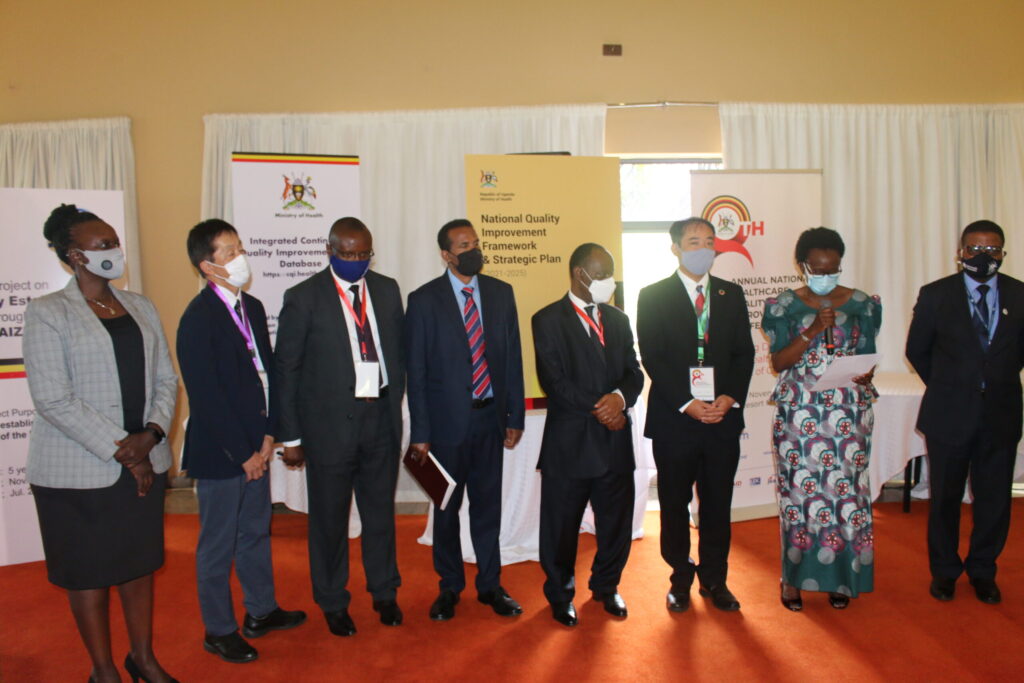
Dr. Jane Ruth Aceng commissioning the CQI Database
The Integrated CQI database is expected to streamline CQI implementation at all levels in the country focusing on the use of 5S (Sort, Set, Shine, Standardise and Sustain) and the PDSA (Plan, Do, Study, Act) cycles theory for all CQI work in the country. The database tracks CQI projects from project enrolment/initiation, improvement changes, indicator progress/ performance measurement and summary of observations prior to project closure. With this innovation, MoH is empowered to monitor CQI initiatives in all regions and districts and as well provide real time data analytics which in turn will advise the areas that need technical support.
The main purpose of the roll out is to promote use of an electronic platform to monitor and improve accountability for health care quality improvement interventions in the country. The dash boards can be filtered to show data regionally, at district level health facility ….
The rollout will support end users in efficient and proper utilization of the database and leverage on PEPFAR investment in health management information system (HMIS). Hence the focus of the roll out will be on facilities with computers and internet capabilities. Quarterly and annual report will be generated from the system to guide CQI implementation and identify mentorship and support supervision priorities.
“This CQI database is a culture that should be embedded in our work to solve challenges and to encourage the public to seek services from these health facilities,” said Professor Rhoda Wanyenze, Dean School of Public Health. She highlighted the fact that users were going to have a chance to learn from each other as a result of using proven solutions and lessons learnt.
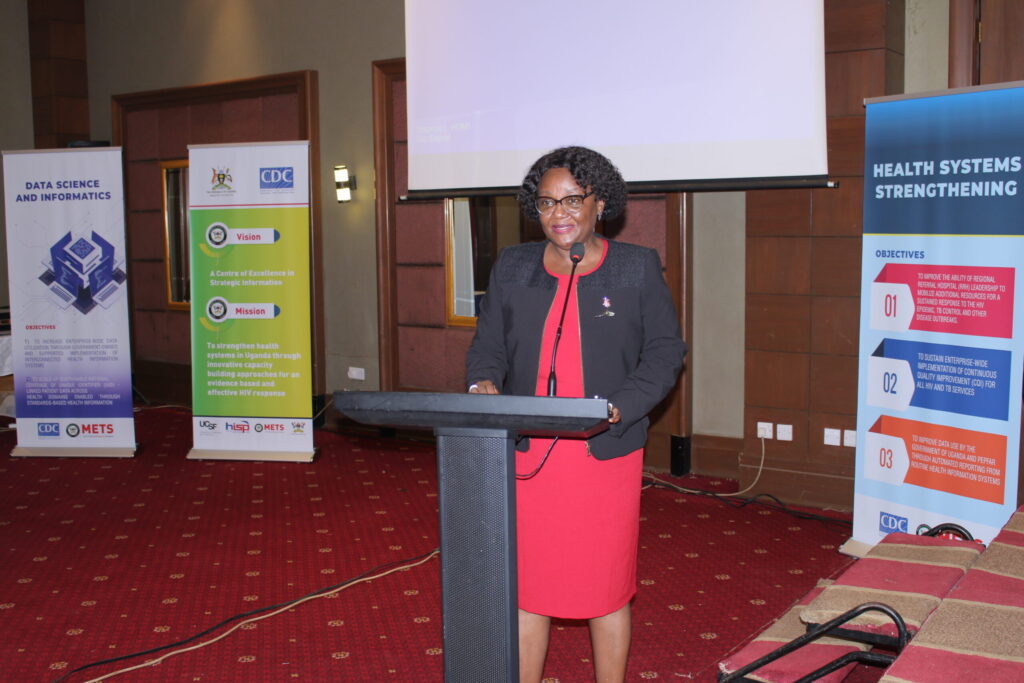
Speaking at the breakfast meeting, Dr. Lisa Nelson, CDC Country Director CDC, noted that for this system to be owned, there was need for ownership to make it part of our day-to-day activities in service delivery towards epidemic control.
“We need sustainability and with less financial support it would be good to prioritize these systems that have been built and use the data so that we make it relevant. This usage will inherently improve service delivery because we can now know what the clients are experiencing at the facilities,” she added.
Dr. Martin Ssendyona, the Ag. Commissioner Standards Compliance and Patient Protection Department (SCAPP) represented the Minister of Health Dr. Jane Ruth Aceng. In his remarks he noted that the Ministry was excited to have the database and they want the data to be used.
“Structures are in place to support usage like the national steering committee for QI. This will streamline data but more importantly make it readily available to stakeholders. We have assessed implementation of service standards, client satisfaction and Quality improvement interventions. The RRH are the biggest actors of this innovation as we cannot engage all levels simultaneously so we shall focus support supervision to improve interventions and quality improvement. The knowledge will then be trickled down to other facilities in time,” Dr. Ssendyona said.
Continuous support in systems development and integration will be conducted by MakSPH-METS through provision of coding and analytics expertise to the Ministry of Health for the next 12 months. To ensure smooth access to the system the MoH will be supported with 10 server memory spaces which will facilitate quick access to the smooth running and improve data storage capacity. In-person trainings will be conducted at national and regional level for the trainers.

